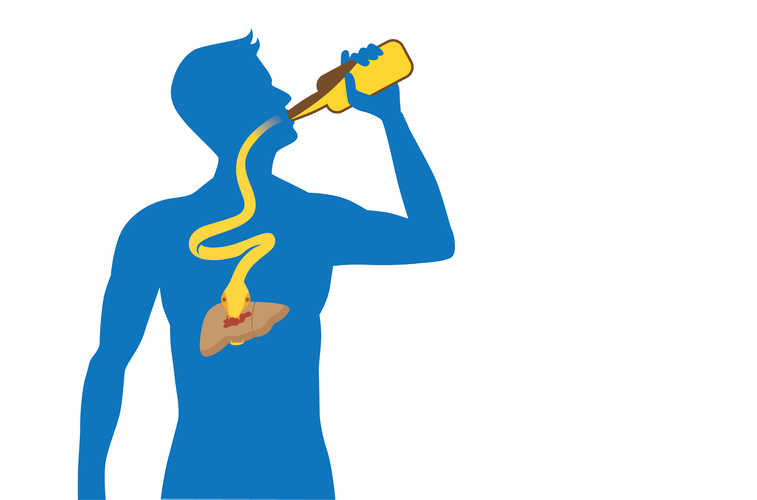The amount of carbs or sugar alcohols you eat can depend on your age, weight, activity levels, or other factors. Def talk with a doctor or registered dietitian before you make major changes to your diet. A small 2016 study also found that people who drank diet sodas had increased blood sugar levels and waist circumference.
Are there risks to using sugar alcohol if you have diabetes?
That effect has been observed in both type 1 and type 2 diabetics as well as in nondiabetics (Arky and Freinkel 1964). Hypoglycemia can have serious, even life-threatening, consequences, because adequate blood sugar levels are needed to ensure brain functioning. Accordingly, more studies are needed to determine whether the beneficial effects of daily moderate https://thecoloradodigest.com/top-5-advantages-of-staying-in-a-sober-living-house/ alcohol consumption outweigh the deleterious effects. Diabetics clearly should avoid heavy drinking (i.e., more than 10 to 12 drinks per day), because it can cause ketoacidosis and hypertriglyceridemia. Moreover, heavy drinking in a fasting state can cause hypoglycemia and ultimately increase diabetics’ risk of death from noncardiovascular causes.
Extreme heat will put millions more older adults at risk in the future
Despite the potential health perks of drinking alcohol, there are some cautions as well. When drinking alcohol is combined with the medications most often used to treat diabetes—particularly insulin and sulfonylureas, low blood glucose can result. While a glass of wine with dinner probably isn’t a big deal, a mojito on an empty stomach at happy hour is. Typically beers, lagers, wines, sherries and liqueurs will have this effect. However, alcohol inhibits the liver from turning proteins into glucose which means you’re at a greater risk of hypoglycemia once your blood sugars start to come down. If you have a number of these drinks, you can expect to see a rise in blood sugar followed by a steady drop a number of hours later, often whilst asleep.
Can I Drink Alcohol If I Have Type 2 Diabetes?

The hormone insulin, which is produced in the pancreas, is an important regulator of blood sugar levels. In people with diabetes, the pancreas does not produce sufficient insulin (type 1 diabetes) or the body does not respond appropriately to the insulin (type 2 diabetes). Alcohol consumption by diabetics can worsen blood sugar control in those patients. For example, long-term alcohol use in well-nourished diabetics can result in excessive blood sugar levels. Conversely, long-term alcohol ingestion in diabetics who are not adequately nourished can lead to dangerously low blood sugar levels. Heavy drinking, particularly in diabetics, also can cause the accumulation of certain acids in the blood that may result in severe health consequences.
Alcohol’s Impact on Blood Sugar
- In addition, certain non-diabetic medications do not mix well with alcohol.
- However, you should be aware of the potential for hypoglycemia, also called low blood sugar levels, when consuming them.
- White wines, especially some types of Champagne, also generally have a low carb count.
- In three patients, those changes did not reverse, even after months or years.
- It was the first time the survey recorded more frequent users of cannabis than alcohol, the report added.
If someone with diabetes chooses to drink alcohol, the ADA recommends limiting consumption to a moderate intake. This translates to one drink per day for females and up to two per day for males. Overall, alcohol consumption leads to less predictable blood sugar levels, and this can be a risk. If you drink, do it occasionally and only when your diabetes and blood sugar level are well-controlled. If you are following a calorie-controlled meal plan, one drink of alcohol should be counted as two fat exchanges.
- Under the influence of excess glucagon, some of the free fatty acids are converted to ketone bodies and secreted into the blood, causing severe health consequences.
- Among their many functions, insulin and glucagon regulate the conversion of fat molecules (i.e., fatty acids) into larger molecules (i.e., triglycerides), which are stored in the fat tissue.
- Use of Ozempic and related drugs that mimic the hormone GLP-1 has been on the rise in recent years, especially in young women.
- LDL cholesterol levels tend to be lower in alcoholics than in nondrinkers (Castelli et al. 1977), suggesting that chronic alcohol consumption may have a beneficial effect on cardiovascular risk.
- You might consider adding a splash or two of your favorite juice to sparkling water instead.
How alcohol affects diabetes
- In most patients, the disease develops before age 40, primarily during childhood or adolescence.
- The choices you make about drinking with type 2 diabetes are yours and yours alone.
- Your healthcare provider will tell you how much alcohol is safe for you to drink.
- This could be three or four glucose tablets, 4 ounces of juice (a small juice box), or five pieces of hard candy (and not chocolate).
- Bud Lite is another low carb beer that provides fewer than 5 grams of carbs per serving.
- No matter how awful you feel, you need to treat a hypo straight away.
Gluconeogenesis, which also occurs primarily in the liver, involves the formation of new glucose molecules from alanine and glycerol. Alanine is generated during the breakdown of proteins in the muscles, whereas glycerol is formed during the metabolism of certain fat molecules (i.e., triglycerides). Alcohol metabolism in the liver, however, actually shuts down the process of gluconeogenesis and thus the second line of defense against hypoglycemia. Top 5 Advantages of Staying in a Sober Living House Consequently, both of the body’s mechanisms to sustain blood sugar levels are inactivated in people who consume alcohol but do not eat, resulting in profound hypoglycemia. Numerous studies have investigated alcohol’s effects on the control of blood sugar levels in diabetics. If you have diabetes, drinking alcohol may be safe for you as long as you choose the right types of drinks and consider alcohol’s effects on your blood sugar levels.







